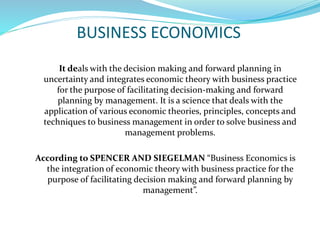Service and Business Economics 101: Important Knowledge for Aspiring Leaders
In today's quickly progressing business landscape, striving leaders must cultivate an extensive understanding of basic tactical structures and economic principles. Understanding principles such as supply and demand, market frameworks, and competitors is not just scholastic; these aspects are vital in forming effective decision-making and promoting technology.
Recognizing Supply and Demand
Supply and demand are basic principles that constantly underpin the mechanics of any kind of market economic climate. The partnership between these 2 pressures establishes the price of products and services as well as their schedule in the market. Supply describes the amount of a product that producers are eager and able to cost different rate levels, while need reflects the quantity that customers are ready and able to purchase.
When demand raises without a matching surge in supply, prices often tend to increase, signifying producers to boost result. Conversely, if supply overtakes demand, costs might drop, triggering producers to minimize output. This dynamic interplay assists to attain market stability, where the amount provided matches the amount demanded at a specific cost point.

Exploring Market Structures
Market frameworks define the affordable setting in which services operate, substantially influencing their rates techniques, outcome degrees, and total productivity. Understanding these frameworks is essential for aiming leaders, as they shape organization decisions and market dynamics.
There are four main kinds of market structures: perfect competition, monopolistic competitors, oligopoly, and syndicate. In a perfectly competitive market, many companies offer similar items, bring about price-taking actions. Monopolistic competition functions several companies selling set apart items, enabling some pricing power. Oligopolies are composed of a few dominant companies that can affect market value, typically bring about strategic interactions and affordable actions. Last but not least, syndicates exist when a single firm controls the market, resulting in the highest possible degree of pricing power and prospective market inadequacies.
Each market framework offers special difficulties and possibilities for businesses. Leaders must comprehend these nuances to efficiently place their organizations, establish affordable strategies, and react to market changes. By grasping the implications of numerous market frameworks, aiming leaders can make enlightened choices that drive their organizations towards sustainable success and growth in an ever-evolving financial landscape.
Financial Concepts for Leaders
Effective leadership in business necessitates a solid understanding of monetary principles, as they underpin calculated decision-making and resource allocation. Leaders should grasp essential principles such as cash flow management, profitability analysis, and monetary forecasting. These elements are important in evaluating an organization's financial health and wellness and directing its future instructions.
Capital monitoring is particularly vital; it makes sure that the company maintains adequate liquidity to satisfy its obligations while pursuing growth chances. Analyzing productivity enables leaders to recognize which service or products generate the highest possible returns, making it possible for informed financial investment decisions. In addition, financial forecasting aids anticipate future earnings and expenses, helping with even more exact budgeting and resource allocation.
Additionally, comprehending financial statements-- such as her explanation annual report, income statements, and capital declarations-- equips leaders with the insights required to make educated selections. This expertise fosters liability and openness, enhancing stakeholder count on.
In today's dynamic organization setting, leaders need to be proficient at analyzing monetary data to respond swiftly to market changes. Eventually, a solid grasp of financial concepts equips leaders to drive their organizations towards sustainable success while successfully handling sources and threats.
The Role of Competition
Comprehending the role of competition is essential for any kind of service intending to prosper in a saturated market. Competition drives advancement and efficiency, compelling services to improve their product or services continually. In an affordable landscape, firms must separate themselves to bring in and maintain clients. This differentiation can show up via remarkable quality, unique attributes, or exceptional customer support.
Furthermore, competitors can cause much better rates methods. As firms try market share, they are incentivized to provide affordable prices, benefiting customers while difficult organizations to manage expenses successfully. This dynamic fosters a culture of constant improvement, pushing companies to simplify operations and boost value propositions.
In addition, competition can boost market development by encouraging new participants. New businesses typically introduce fresh concepts and approaches, even more boosting the general market landscape. Firms must likewise be vigilant; extreme competitors can lead to market saturation, minimizing earnings for all players involved.
Eventually, understanding and browsing competitors is crucial for leaders. By acknowledging its multifaceted role, aiming leaders can make enlightened choices that position their organizations for long-lasting success in an ever-evolving industry.
Strategic Decision-Making
In the realm of business, calculated decision-making is essential to achieving lasting purposes and adjusting to transforming scenarios. This procedure includes assessing various choices and choosing the most effective strategy that lines up with the organization's vision and goals. Effective critical decision-making needs an extensive understanding of both external and internal settings, consisting of market trends, affordable characteristics, and business abilities.
Trick elements of strategic decision-making consist of information evaluation, stakeholder interaction, and danger evaluation. Leaders need to collect appropriate information, assess it seriously, and forecast potential results. Involving stakeholders promotes collaboration and guarantees that varied perspectives are taken into consideration, improving the top quality of decisions made - Business and Economics. In addition, examining risks connected with each alternative allows leaders to establish and anticipate challenges you can look here backup strategies.
Ultimately, successful critical decision-making empowers organizations to browse intricacies, leverage possibilities, and react proactively to threats. By growing a society that values notified decision-making, organizations position themselves to innovate and maintain a competitive edge in an ever-evolving company landscape. Aspiring leaders should develop these abilities, as their ability to make audio tactical choices will considerably influence their organizations' success and sustainability.

Verdict
Understanding the duty of competition Go Here further boosts tactical reasoning, making it possible for leaders to navigate complicated market dynamics. Ultimately, this foundational knowledge outfits future leaders to introduce and line up business techniques with advancing market problems, leading the way for continual success and productivity.
Understanding these principles is essential for aiming company leaders, as they create the foundation for efficient decision-making in rates, resource appropriation, and market technique. Understanding supply and demand furnishes leaders to browse the complexities of market variations and customer behavior.
Monopolies exist when a single firm regulates the market, resulting in the greatest degree of rates power and potential market ineffectiveness.
By realizing the ramifications of various market structures, striving leaders can make informed choices that drive their services toward sustainable success and growth in an ever-evolving financial landscape.
Comprehending the duty of competitors further boosts calculated reasoning, making it possible for leaders to navigate complicated market dynamics.
Comments on “A Thorough Analysis into the Global Impact of Business and Economics Policies”